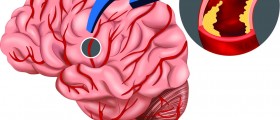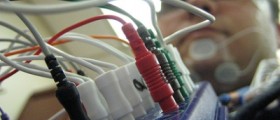Overview
Although becoming pregnant after suffering a stroke does have its obstacles that you'll need to overcome, it is possible to still have healthy children after experiencing such as condition.

Medications
The following medications for applicable chronic conditions that are associated with strokes need to be made:
- Blood pressure medication needs to be changed to a drug such as methyldopa as it is one of the only anti-hypertensive medications that are safe for exposure to the fetus without causing any birth defects.
- Patients who are using anticonvulsant medications may need to have these drugs reviewed to make sure they are safe to be used during the pregnancy as some may cause neural tube defects in the developing fetus.
- Those individuals who had a stroke due to obstruction of a blood vessel to the brain by a thrombus (clot) will have to use anticoagulants (blood thinners) such as heparin for the duration of the pregnancy. The reason for this is because pregnancy itself increases the clotting ability (coagulability) of blood which then increases the chances of a blood clot developing.
- Diabetic patients will be monitored during antenatal visits to their doctors to make sure that the pregnancy itself is not stimulating increased glucose production or release into the bloodstream. The diabetic medications used by the patient usually stays the same but the dosages may just need adjusting where applicable.
Considerations
The functional ability of the patient will also play a role in what her ultimate decision is at the end of the day. In most cases, there is a partner involved so they will have to understand and accept that their involvement will be high. This is applicable not only to the care of the child but the care of the mother to help out when she struggles with certain activities.
Birth control
Another important topic for discussion is what forms of contraception will be the safest to use. Although this doesn't have anything to do with the changes that need to be considered for becoming pregnant, the decision for what contraception needs to be used before making the decision to become pregnant or after the baby is born is important.
The barrier methods such as male and female condoms are the safest options, especially for those patients who don't want to use hormonal contraception as this increases the risk of blood clot formation. Although this is true, estrogen-free contraception in the form of certain intra-uterine devices (IUDs) and implantable devices may be considered.
- www.ncbi.nlm.nih.gov/pmc/articles/PMC2634299/
- Photo courtesy of SteadyHealth
















